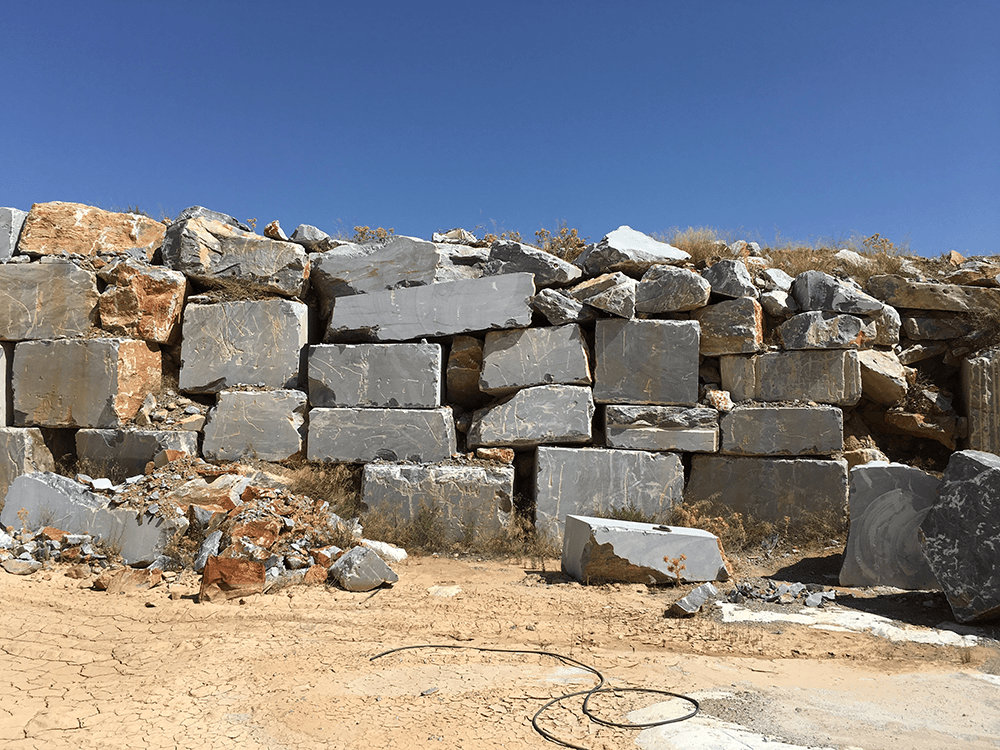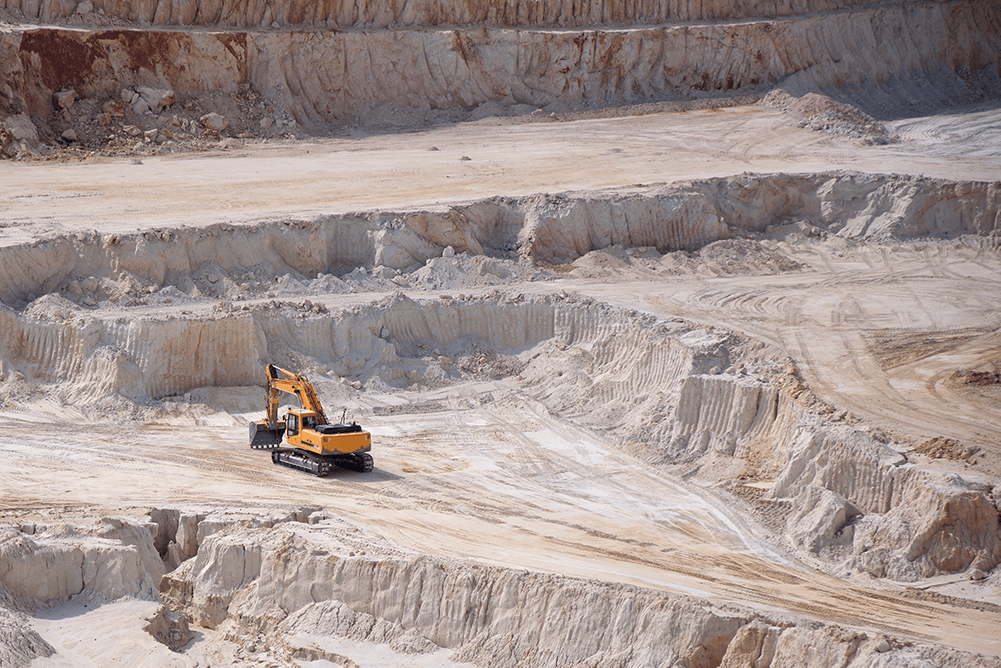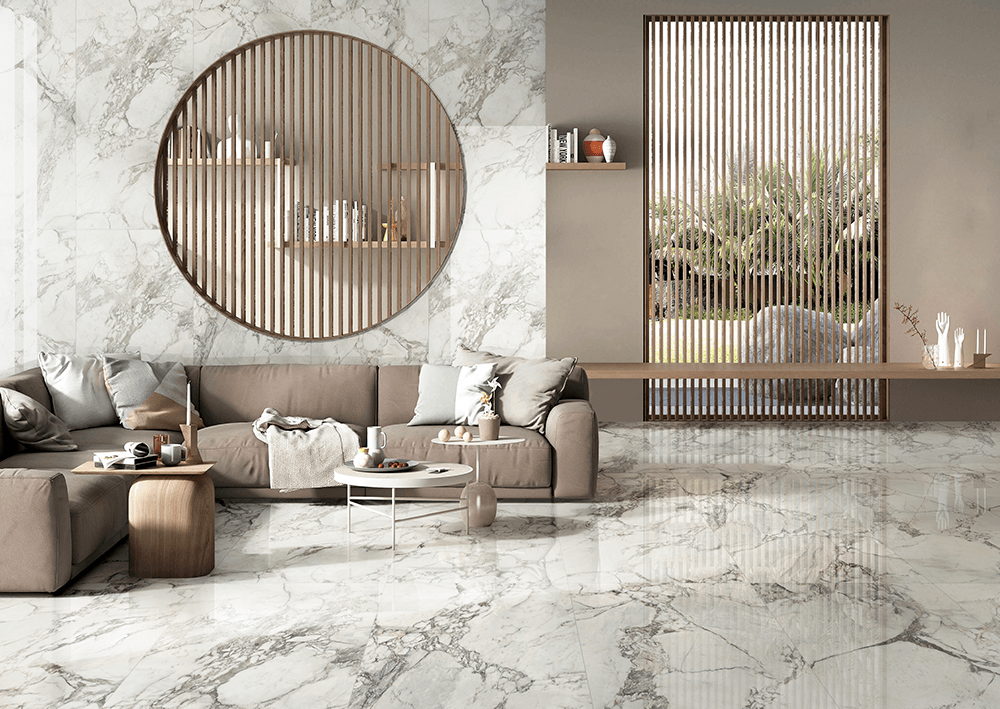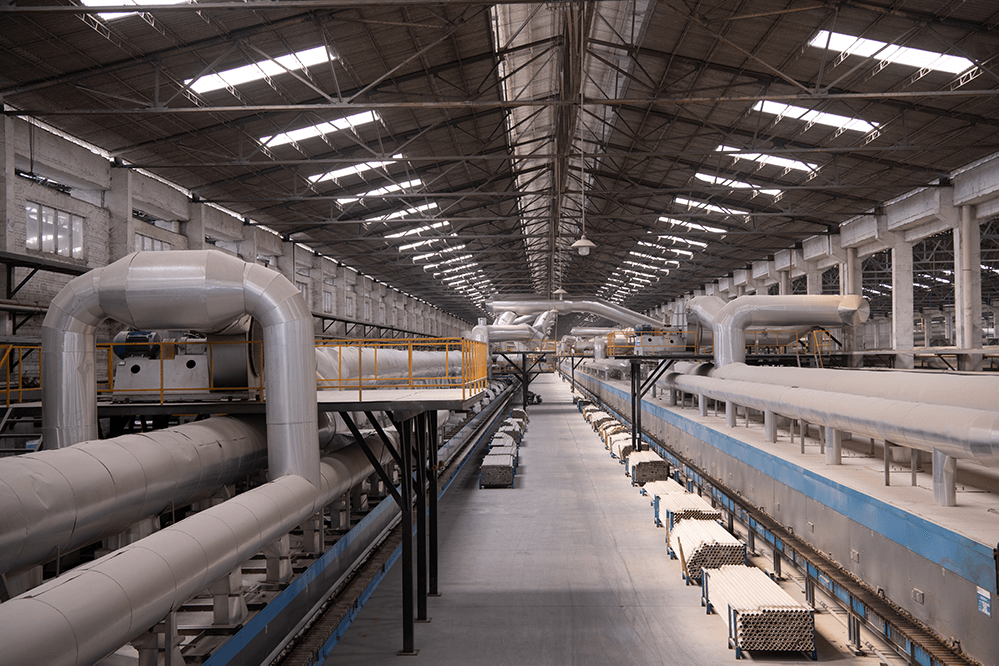As architects and developers continue to adopt new ways to lessen their impact on the environment, is a day of reckoning coming for the beloved marble surface? Amidst the primary topics of climate change, extinction of animal species, pollution and the use of unsustainable products and practices, there are signs that the interior design industry is rethinking its habitual use of natural stone.
Kaolin keeps the protection and preservation of the environment in the forefront of its mind, rather than as an afterthought. It is a priority both in our methods and in our final product. We are arguably the only surface manufacturer producing luxurious marble patterns that is not only a sustainable alternative to natural or engineered stone, but does so with a carbon neutral production process. We mimic real stone patterns to the finest detail, using porcelain as a sustainable alternative.
The problems with marble
Having a desire to act sustainably, then filling spaces with precious materials extracted from the earth in ethically suspect ways is becoming a painful contradiction within some design circles. Marble is an incredibly rare resource. For every slab used, an equal or greater amount of off-cuts are discarded in a quarry graveyard. Slab marble is expensive not only because it is rare, but because it is heavy, and therefore costly to transport internationally. It is commonplace to redecorate homes every so often, ripping out old marble and adding it to local landfill, and the huge amount of waste does nothing else but add to an impending environmental catastrophe.
While most customers select marble for the beauty of its natural patterns, as a stone product its durability is also inherent in its reputation. In everyday reality, it is important to remember that the longevity of natural stone has its limits. Domestic and commercial stone surfaces can be damaged by stains, cracks or chemical deterioration, so its grand presentation can be spoiled in an unfortunate moment. It is not uncommon that a piece has to be replaced after such an event. Along with the exorbitant price, this is the principal resistance to large-format marble slabs. These issues do not exist with Kaolin Tiles’ porcelain. Surfaces are more durable than marble, and if a tile is damaged, it can easily be replaced with seamless precision.

Ethics of origin
The release of the Hollywood film Blood Diamond starring Leonardo di Caprio gave the world an insight into the unethical working conditions of the labourers, including child labour, who source the precious stone. This can and should be a concern in the sourcing of other natural stones, and more designers are not accepting materials that come from unverified sources. As global fashion trends away from the use of real fur and leather products, the construction industry with its long-lasting impact understands its responsibility to make a similar move and create designs that incorporate more ethical and sustainable materials.

Conscience crisis and solutions
Sadly, social media platforms such as Instagram and Pinterest have only pushed fashion trends into increasing the exposure of slab marble kitchens. Others widely use engineered stone, but this too is being scrutinised for totally different concerns, as questions are raised about possible links between the cutting of the synthetic surfaces and cancer-causing silicosis. Despite the requests of clients, high-end designers are on the verge of making a stand and saying no to the use of such detrimental materials, when there are Earth-friendly alternatives such as those offered by Kaolin. With the technology of porcelain tile manufacturing reaching levels that its near impossible to differentiate the patterns from the natural stones they replicate, designers can still deliver killer looks without compromising the health of the environment.

Conclusion
How about you? Do you believe that a client’s desire for a marble slab is worthy of this compromise? The world is a visual place so the choices around materials are typically based on aesthetics instead of ethics. Fortunately, Kaolin is taking the lead in the sustainable supply of porcelain tiles. We manufacture all of our tiles in an ethical factory that is completely carbon neutral, and all waste is recycled. And luckily for our clients and our planet, the looks of our natural stone patterns are indistinguishable from the real thing.

Reference:
https://www.ft.com/content/62cbdf28-5d87-4a51-9236-759f7bd05375
https://www.theguardian.com/sustainable-business/2015/oct/16/indian-child-labour-behind-patio-stones-sandstone-rajasthan
https://www.aiff.net.au/features/eco-friendly-design-using-marble-still-ethical/
https://www.business-humanrights.org/en/latest-news/india-report-finds-modern-slavery-child-labour-unsafe-work-at-granite-quarries-what-should-companies-do/

